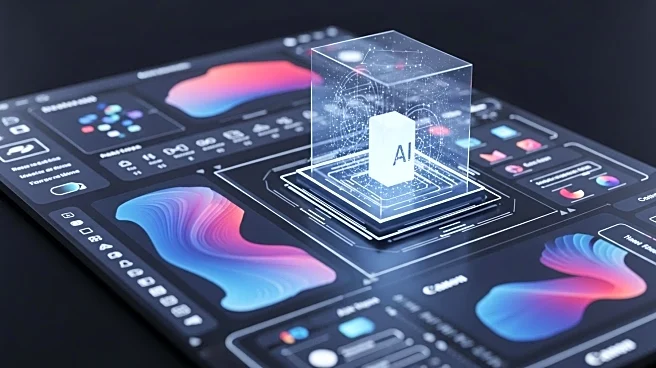What is the story about?
What's Happening?
Figma's CEO, Dylan Field, has clarified that the company's AI tools are designed to enhance the design process rather than replace the work of world-class designers. Speaking on a podcast, Field emphasized that Figma's AI capabilities aim to 'lower the floor' by making design more accessible to newcomers and 'raise the ceiling' by enabling experienced designers to achieve more. The tools are intended to remove the 'drudgery' from design tasks, allowing designers to focus on more creative and high-value work. Despite the advanced capabilities of AI, Field noted that there remains a critical need for human designers to lead creative processes, as AI can only assist up to a certain point.
Why It's Important?
The introduction of AI tools in design represents a significant shift in how creative processes are managed, potentially democratizing access to design by lowering barriers for entry-level users. This development could lead to increased productivity and innovation within the design industry, as designers can delegate routine tasks to AI, freeing up time for more complex and creative endeavors. However, it also raises questions about the future role of designers and the balance between human creativity and machine efficiency. Companies like Figma and Canva are at the forefront of this transformation, highlighting the importance of integrating AI in a way that complements rather than replaces human expertise.
What's Next?
As AI continues to evolve, the design industry may see further integration of these tools, potentially leading to new standards and practices in design workflows. Companies might invest more in AI development to enhance their design capabilities, while educational institutions could adapt their curricula to include AI literacy for designers. Stakeholders in the design industry, including businesses and educational bodies, will likely monitor these developments closely to understand the implications for future design practices and employment.
Beyond the Headlines
The ethical implications of AI in design are significant, as the technology could influence creative decision-making and intellectual property rights. There is also a cultural dimension, as the integration of AI in creative fields challenges traditional notions of authorship and originality. Long-term, the industry may need to address these issues to ensure that AI is used responsibly and that human creativity remains at the forefront of design innovation.















